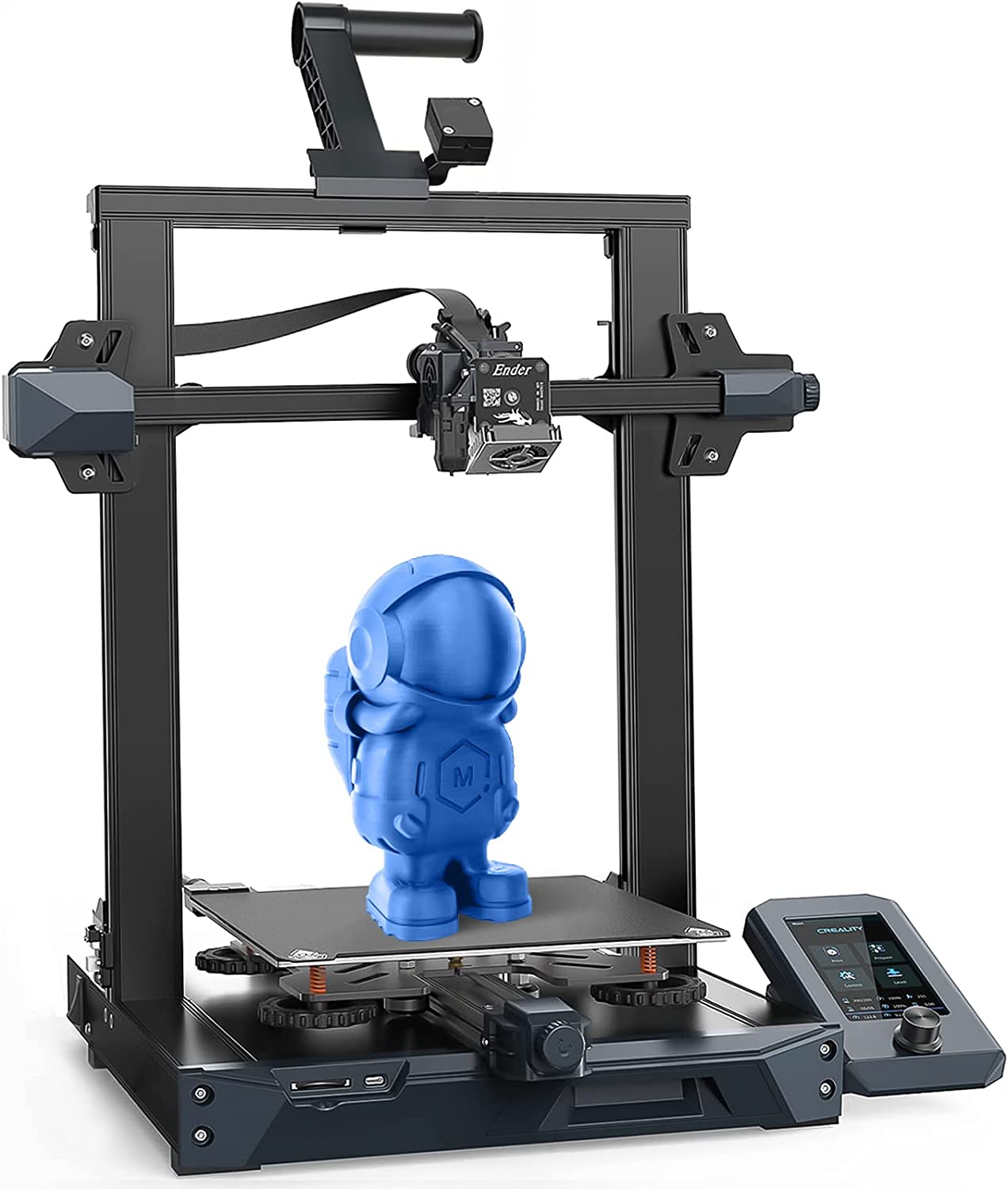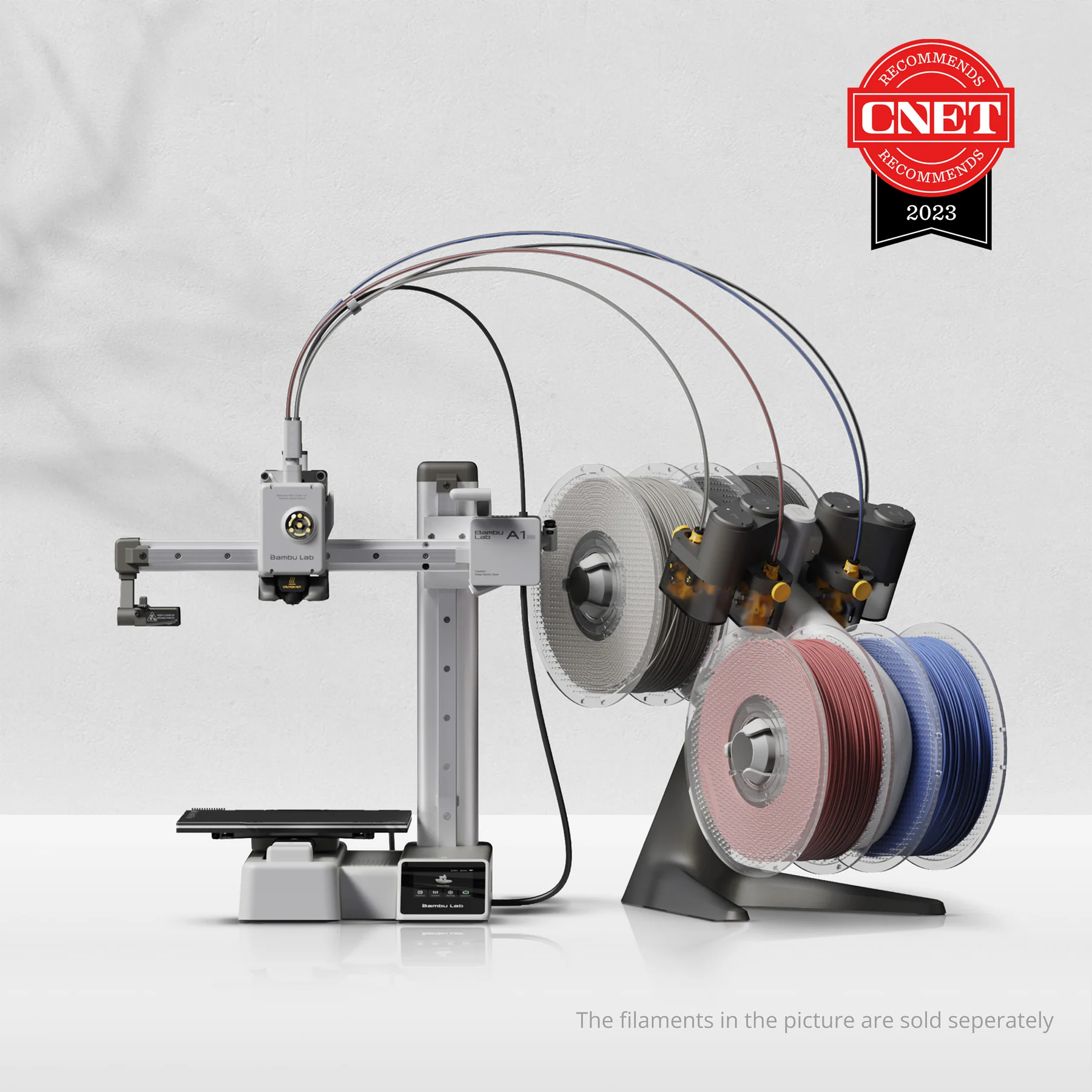Compare Ender 3 S1 vs A1 Mini
Comparison between the best 3D printers
Choose the best 3D printer at the best price. The cheapest 3D printers are here.
Buy a 3D printer here with 3D Fila.
 |
 |
|
| Model | Ender 3 S1[BUY Ender 3 S1] |
A1 Mini |
| Printing Material | Filament | Filament |
| Buy Filament for Creality 3D Ender 3 S1 | Buy Filament forBambu Lab A1 Mini | |
| Estimated price | $399,00 | $549,00 |
| Manufacturer | Creality 3D | Bambu Lab |
| Release Year | 2021 | 2023 |
| Print Volume [mm] | 220x220x270 | 180x180x180 |
| Printer Size [mm] | 455x490x625 | 315x347x365 |
| Weight [kg] | 9,1 | 5,5 |
| Power Loss Recovery | YES | YES |
| Enclosed printer | NO | NO |
| Bed Leveling | Automatic | Automatic |
| Filament End Sensor | YES | YES |
| Bed type | Heated | Heated |
| Power supply system | Direct Drive | Direct Drive |
| Standard nozzle | 0,4 | 0,4 |
| Maximum Nozzle Temperature [°C] | 260 | 300 |
| Maximum Bed Temperature [°C] | 100 | 80 |
| Maximum printing speed [mm/s] | 180 | 500 |
| Filament holder | YES | YES |
| Camera for supervision | NO | NO |
| Recommended filaments | PLA, TPU, PETG, ABS | PLA, PETG, TPU, PVA |
| Recommended slicers | Cura, Simplify, Slic3r, IdeaMaker, Creality Slicer e outros | Bambu Studio, Super Slicer, Cura, Prusa Slicer, Orca |
| Maximum Resolution [mm] | 0,05 | 0,1 |
| Processor | 32-bit Silenciosa | |
| Display | Display 4,3'' | Touchscreen 2,4'' |
| Power Supply | 150 W | |
| Connectivity | SD / USB | Wifi, Bambu bus, Cartão SD |
| Operating systems | Windows, Mac, Linux | Windows, Linux, Macbook |
| Date of registration in the system | 2023-03-28 | 2024-04-10 |
| Release date | 2021 | 2023 |
| Extra features | The Creality Ender 3 S1 printer stands out for its easy assembly and quiet operation. It has automatic bed leveling and a direct drive system, providing high-quality prints. The design is sleek, with flat cables in mesh sleeves and a magnetic bed. The Creality Sprite extruder is lightweight and developed in-house, supporting a maximum nozzle temperature of 260 degrees. It includes a filament run-out sensor and power loss recovery, with a dual Z-axis for greater support and stability. The build plate is flexible steel with PC coating, and the printer supports a wide variety of filaments. | The Bambu Lab A1 Mini stands out not only for its impressive speed and automatic calibration, but also for its multi-color printing capability thanks to AMS Lite. This innovative system makes multi-color printing easy, making it accessible to everyone. AMS Lite, specific to the A1 Mini, supports up to four different materials simultaneously, providing creative freedom without complications. With comprehensive sensors for energy monitoring and recovery, a camera for timelapses and Wi-Fi control, the A1 Mini and AMS Lite together offer an intuitive and advanced 3D printing experience, ideal for materials such as PLA, PETG and TPU, and designed for simplicity and fast maintenance with quick-change nozzles. |
| Support for multiple colors and materials (AMS and CFS) | NO | YES |
Notes * |
||
| Cost-benefit | 7 / 10 | 7 / 10 |
| Hardware | 2 / 10 | 4.2 / 10 |
| Tela | . | . |
| Print volume | 3 / 10 | 3 / 10 |
| Performance | 1 / 10 | 4 / 10 |
| [BUY Ender 3 S1] |
Conclusion |
| In comparing the Creality 3D Ender 3 S1 and the Bambu Lab A1 Mini, it's clear that both printers cater to different user needs and preferences despite being in the same market segment. The Ender 3 S1, released in 2021, presents a strong value proposition due to its larger print volume, lower price point, and user-friendly features such as automatic bed leveling and a flexible build plate. It is particularly ideal for new users or hobbyists who prioritize a balance of performance and cost. Its solid construction and compatibility with a variety of filaments make it suitable for various projects. On the other hand, the Bambu Lab A1 Mini, introduced in 2023, offers advanced features that elevate the 3D printing experience. With impressive maximum printing speeds, a compact design, and the ability to handle multiple filaments simultaneously through the AMS Lite system, the A1 Mini is designed for creative enthusiasts who value speed and versatility. Its built-in connectivity options and monitoring features provide more advanced capabilities for those looking to streamline and enhance their printing processes. While both printers have automatic bed leveling and similar nozzle sizes, the Bambu Lab A1 Mini excels in speed and multi-material functionality, catering to users who aim to push the boundaries of 3D printing. Ultimately, the choice between these two will hinge on individual priorities such as budget considerations, desired print quality, and the range of materials one intends to use. In summary, if cost-effectiveness and a larger build volume are paramount, the Ender 3 S1 is a commendable choice. Conversely, if speed and multi-material capability are more appealing, the Bambu Lab A1 Mini would be the better option, despite the higher investment. Each printer has its strengths, making them suitable for different segments of the 3D printing community. |

